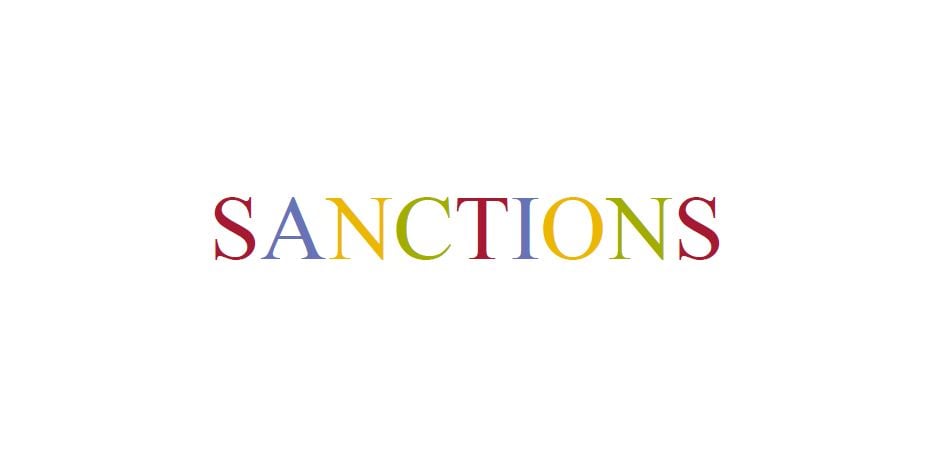On 18 December 2014, the European Union significantly extended its trade sanctions in relation to Crimea and Sevastopol. Regulation 1351/2014 (“the Regulation”) amends Regulation 692/2014 as amended by Regulation 825/2104. The main elements of the new regulation are as follows:
- a very significant extension of restrictions on the areas already covered in the earlier Regulations; and an extension to new areas (e.g. real estate and tourism services);
- broadening of the restrictions already in place to include “investment services”;
- new restrictions on certain dealings with entities in Crimea or Sevastopol defined as “any entity having its registered office, central administration or principal place of business in Crimea or Sevastopol, its subsidiaries or affiliates under its control in Crimea or Sevastopol, as well as branches and other entities operating in Crimea or Sevastopol“; and
- a very significant extension of the prohibited goods and technologies, amalgamated into a single Annex, Annex II.
The Regulation sets out a series of new restrictions on activities in new Article 2a. In the earlier Regulations, restrictions were targeted at infrastructure in the areas of transport, telecommunications and energy. In the new Article 2a, it is prohibited for persons under EU jurisdiction to:
- acquire or extend any participation in real estate in Crime or Sevastopol;
- acquire or extend any participation in ownership or control of any entity in Crimea or Sevastopol;
- grant or take any part in a grant of a loan or credit to an entity in Crimea or Sevastopol;
- create any JV with an entity in Crimea or Sevastopol;
- provide “investment services” related to any of the above. “Investment services” are very widely defined and include:
- reception and transmission of orders in relation to one or more financial instruments,
- execution of orders on behalf of clients,
- dealing on own account,
- portfolio management,
- investment advice,
- underwriting of financial instruments and/or placing of financial instruments on a firm commitment basis,
- placing of financial instruments without a firm commitment basis,
- any service in relation to the admission to trading on a regulated market or trading on a multilateral trading facility.
These new restrictions are subject to a grandfathering clause under which the restrictions will not prohibit discharge of obligations under a contract entered into before 20 December 2014, provided that a competent authority has been informed 5 days prior to that discharge. New Article 2b, paragraph 1, prohibits sale, supply, transfer or export of goods and technologies on Annex II:
- to any entity in Crimea or Sevastopol (see above); or
- “for use in Crimea or Sevastopol”
Paragraph 1 is then concluded with the following phrase:
“Annex II shall include certain goods and technologies suited for use in the following key sectors:
(i) transport;
(ii) telecommunications;
(iii) energy;
(iv) the prospection, exploration and production of oil, gas and mineral resources.”
This has lead to some suggestions that the list of goods and technologies on the revised Annex II are in some way limited to use in these sectors. It is our view that Annex II is not limited in this way, and that the sectoral language in effect operates as a direction to the Council and Commission as to what to include on Annex II. As to Annex II itself, it has been significantly extended, covering all products in Customs Chapters 25 (certain construction materials), 26 (ores), 27, (fuels and oils), 28 (inorganic chemicals), 29 (organic chemicals), 72 (iron & steel), 73 (iron & steel articles), 74 (copper and copper articles), 75 (nickel and nickel articles), 76 (aluminium and aluminium articles), 78 (lead and lead articles), 79 (zinc and zinc articles), 80 (tin and tin articles), 81 (other base metals), 86 (railway equipment), 88 (aircraft), 89 (ships and boats), and 98 (complete industrial plant). Annex II also contains some products in Chapters:
- 38
- 71 (precious metals)
- 82
- 84 (most machinery)
- 85 (most electrical and electronic goods)
- 87 (land vehicles)
- 90 (other electrical and electronic equipment).
New Article 2b, paragraph 2, prohibits the provision, directly or indirectly, to any entity in, or for use in Crimea or Sevastopol:
- of “technical assistance” or “brokering” relating to goods or technology on Annex II, or for the provision, maintenance or use of those goods or technology;
- of “financing or financial assistance” relating to goods or technology on Annex II.
Both “technical assistance” and “brokering” were defined in Regulation 825/2014 in the following terms:
“brokering services” means:
(i) the negotiation or arrangement of transactions for the purchase, sale or supply of goods and technology or of financial and technical services, including from a third country to any other third country; or
(ii) the selling or buying of goods and technology or of financial and technical services, including where they are located in third countries for their transfer to another third country.
“technical assistance” means any technical support related to repairs, development, manufacture, assembly, testing, maintenance, or any other technical service, and may take forms such as instruction, advice, training, transmission of working knowledge or skills or consulting services; technical assistance includes verbal forms of assistance.’
Importantly Article 2b.3 states that the prohibition will not apply “where there are no reasonable grounds to determine that the goods and technology or the services under paragraph 2 are to be used in Crimea or Sevastopol.” As with the restrictions in 2a, the new restrictions in 2b are also grandfathered so that the restrictions will not prohibit discharge of obligations under a contract entered into before 20 December 2014, provided that a competent authority has been informed 5 days prior to that discharge. However, the grandfathering here is subject to a longstop date of 21 March 2015. The precise scope of new Article 2c.1 is unclear, and frankly difficult to understand. It states:
“It shall be prohibited to provide technical assistance, or brokering, construction or engineering services directly relating to infrastructure in Crimea or Sevastopol in the sectors referred to in Article 2b(1) as defined on the basis of Annex II, independently of the origin of the goods and technology.”
It seems clear that Article 2c.1 intends to limit the provision of certain technical assistance, brokering and other services to the fours sectors in Article 2b.1, i.e. (i) transport;(ii) telecommunications;(iii) energy; and (iv) the prospection, exploration and production of oil, gas and mineral resources, without reference to where the goods or technology originate. However, it is difficult to ascertain whether there is any difference between the prohibition in Article 2c.1, and Article 2b, paragraph 2, since the latter appears to cover the former. As with Article 2b, the restrictions are grandfathered with the same longstop date. Article 2d introduces a new restriction on “tourism activities in Crimea or Sevastopol”, but “tourism activities” remains undefined. Paragraphs 2 and 3 apply the prohibitions clearly to the activities of cruise ships in Crimea. Again, as with Article 2b, the restrictions are grandfathered with the same longstop date. Given the stringent nature of the new restrictions, Article 2e provides for certain narrow exceptions, including Member State authorizations for:
- for activities covered by international immunities;
- healthcare projects;
- equipment for medical use;
- maintenance relating to the safety of existing infrastructure;
- activities necessary for the urgent prevention or mitigation of an event likely to have a serious and significant impact on human health and safety, including the safety of existing infrastructure, or the environment.
By Ross L. Denton and Sunny Mann (Baker & McKenzie London)



